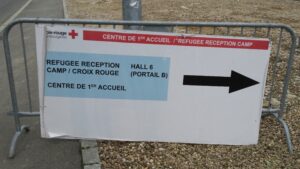REFUGOV – a new project on refugee camps and reception facilities supported by the FNR
The research project ‘The governance of reception facilities for refugees in Luxembourg: local and global perspectives’ (REFUGOV) has been retained for funding by the Luxembourg National Research Fund (FNR). The project will run for three years from 2018 to 2021. Dr Lucas Oesch is in charge of the project. The project also involves Dr Jonathan Darling from Durham University, who will be in the steering committee, together with Prof Birte Nienaber from the University of Luxembourg.
The project deals with the governance of reception facilities for refugees (refugee camps, reception centres), with a particular focus on the role of local and municipal actors, by looking at institutional settings, governance processes, and their effects on the in/exclusion of refugees, and on refugees’ subjectivities. Going beyond categories of the global South and North, the case studies are Luxembourg and Jordan.
Over the last few years, Luxembourg has responded to an increasing number of refugees arriving by setting up temporary reception facilities. More generally, across the world, refugees are accommodated in similar infrastructures, known as either reception centres or refugee camps. These facilities, and the length of time their residents stay there, often turn into a situation of ‘permanent temporariness’, which raises questions about the integration of refugees. Are they included in, or excluded from, the state territory and its society? This project focuses on the governance of these facilities and its effects on residents’ subjectivities. It starts from two observations: 1) Even though, in many countries, facilities are located on the territories of local authorities, the latter are often not officially in charge of them. Facilities are set up by the central state and operated under its supervision. Yet local authorities are often indirectly involved, for example through the provision of municipal services; 2) In the fields of forced migration and camp studies, there is a lack of research perspective on the governance of reception facilities across the global South and North, and especially with a focus on the role of local authorities. To meet these research needs, this project builds on insights from refugee camps in Jordan, a country which has experienced the presence of ‘permanent-temporary’ reception facilities for 70 years, to put them into perspective with processes of refugee reception in Luxembourg.
The project aims at: 1) Developing a more global approach to analysing the governance of refugee reception facilities, going beyond the global South-North divide; 2) Developing a better understanding of the role of local governance in relation to refugee reception across the global South-North divide; 3) Understanding better the specificities in Luxembourg of the governance of refugee reception facilities from the perspective of global processes of refugee reception.
For more information on the project, please contact lucas.oesch@uni.lu
